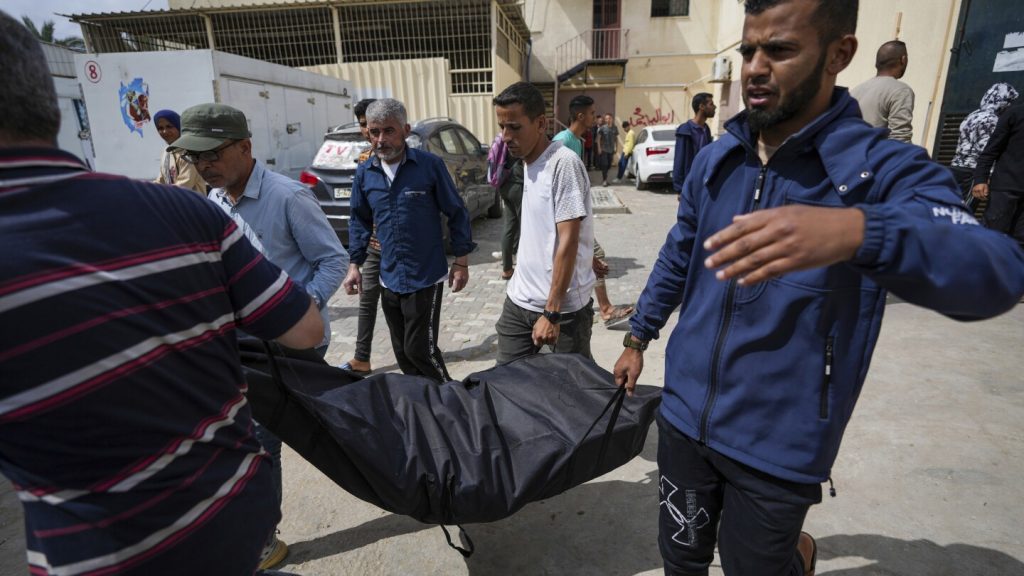Israeli airstrikes have killed at least 22 people in the southern Gaza city of Rafah, including women and children. The ongoing conflict between Israel and Hamas has led to escalating violence, with Rafah being targeted as a major Hamas stronghold. The United States and other countries have urged Israel not to invade the city, fearing a humanitarian catastrophe. The airstrikes have resulted in the deaths of innocent civilians, including young children, sparking international outrage and calls for peace.
The Israel-Hamas war was triggered by a raid into southern Israel in which militants killed many civilians and abducted hostages. The war has taken the lives of over 34,000 Palestinians, a majority of whom are children and women. The ongoing violence and instability in the region have raised concerns about the conflict spreading further. U.S. Secretary of State Antony Blinken is embarking on his seventh diplomatic mission to the Middle East, with stops in Saudi Arabia, Jordan, and Israel. The prospects for peace in the region are uncertain, with tensions escalating and the situation becoming more volatile.
Hamas is considering an Israeli proposal for a cease-fire in Gaza as fears of an impending invasion of Rafah grow. President Joe Biden spoke with Israeli Prime Minister Benjamin Netanyahu to address the escalating tensions and pressure for a cease-fire. The conflict has prompted mass protests around the world, criticizing U.S. support for Israel and arms transfers. The Biden administration is navigating these challenges as the conflict continues to pose humanitarian and political dilemmas.
The international community is closely monitoring the situation in Gaza, with calls for humanitarian aid to be delivered and cease-fire negotiations to advance. Despite efforts to broker peace, the conflict shows no signs of abating, with both sides entrenched in their positions. The White House has reiterated its stance against the invasion of Rafah and stressed the importance of delivering humanitarian aid to Gaza. As Blinken returns to the Middle East to address the crisis, the urgency for a diplomatic resolution remains high amidst escalating violence and casualties.
Amidst the ongoing conflict, Israeli airstrikes continue to target civilian areas in Gaza, resulting in the deaths of innocent bystanders, including women and children. The high civilian death toll has drawn criticism from the international community, with calls for a more concerted effort to protect civilians and reach a cease-fire agreement. The situation remains volatile, with fears of a humanitarian catastrophe looming as the conflict escalates. As efforts to broker peace and end the violence persist, the need for a diplomatic resolution becomes increasingly urgent to prevent further loss of life and instability in the region.
The conflict between Israel and Hamas shows no signs of abating, with both sides engaged in a deadly standoff that has resulted in the deaths of thousands of Palestinians, including many children and women. The violence has sparked international outrage and calls for a cease-fire, as civilian casualties mount. As diplomatic efforts intensify, the urgent need for a peaceful resolution becomes increasingly apparent to avoid further bloodshed and suffering. The international community must work together to address the root causes of the conflict and find a lasting solution that ensures the safety and well-being of all those affected by the violence in Gaza.


